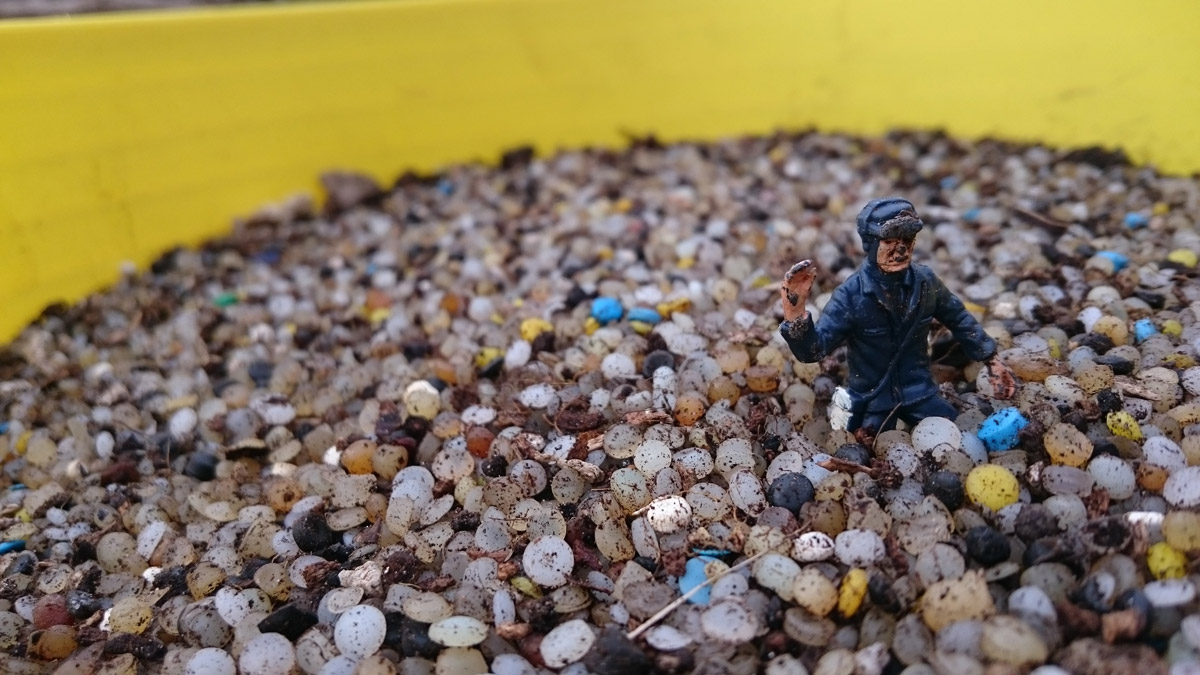I am Megan Kirton, project officer at Fidra. We are an environmental charity based in Scotland named after Fidra island, a wildlife haven off the East coast. Fidra works to reduce plastic waste, prevent chemical pollution, and make space for nature in our environment. We use a scientific evidence-based approach, and work collaboratively with industry, government, and communities to find solutions to specific environmental issues.
The Great Nurdle Hunt
Nurdles are small plastic pellets made by the petrochemical and plastics industry and are used by plastics manufacturers to create nearly all plastic products. However, these plastics pellets are leaking out in high numbers across the whole plastics supply chain and ending up on our beaches across the world. This is resulting in extremely damaging plastic pollution, which affects ecosystems, oceans and marine wildlife.
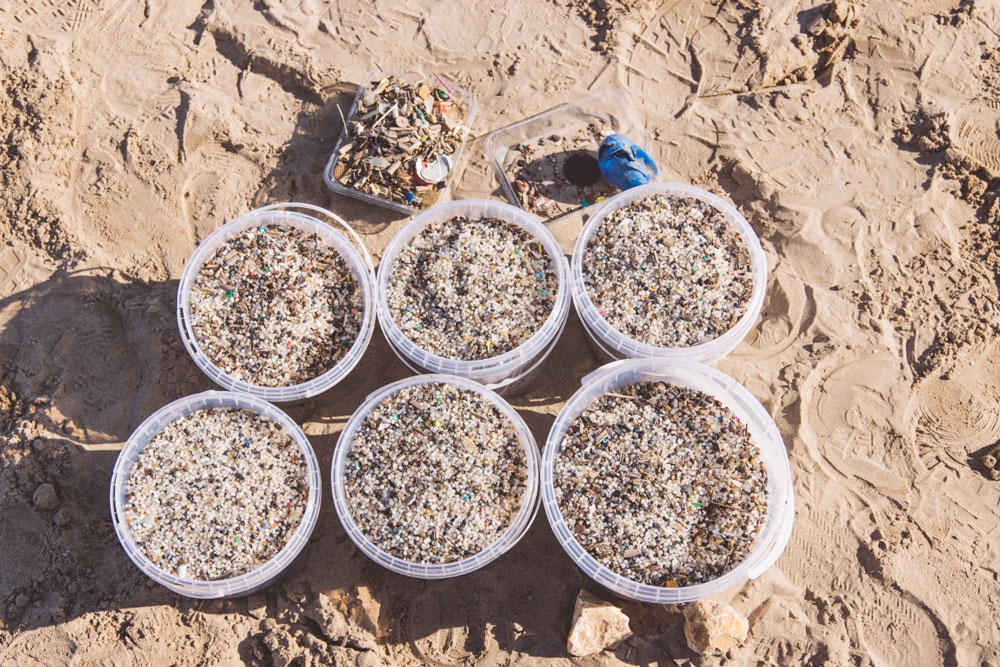
Photo credit: Kama Project, 2021
Once in the environment, nurdles are almost impossible to remove, reuse, or recycle, and are often mistaken for food by a range of marine wildlife. Studies have shown that plastic on beaches can release CO2, ethylene, methane and propane gases that all contribute to the greenhouse effect.
The Great Nurdle Hunt is Fidra’s flagship project and aims to fight this pollution from the petrochemical and plastics industry - nurdles. It is a global citizen science project that builds evidence of nurdle pollution. Our Nurdle Map shows the extent of nurdle pollution on coastlines across the world since 2013 when the project first began. This evidence has been collected from over 6,000 nurdle hunts done by thousands of volunteers and hundreds of organisations across the world, from Norway to New Zealand.
The great thing about the nurdle hunt is that taking part is easy, it can be done anywhere, anytime by anyone, you don’t need any equipment and by taking part you help to illustrate the global extent of this pollution.
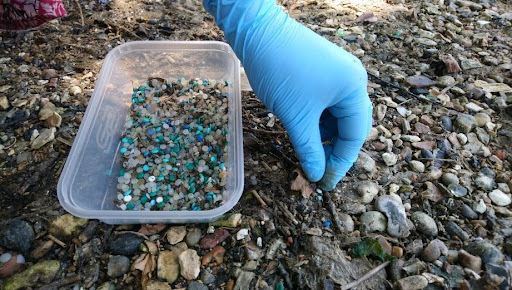
Nurdle collected in the Gallapagos (left) and nurdles collected from Chessel Bay nature reserve in Southampton, England (right). Photo credits: Maria E B, Mingas Por El Mar and Extinction Rebellion Romsey.
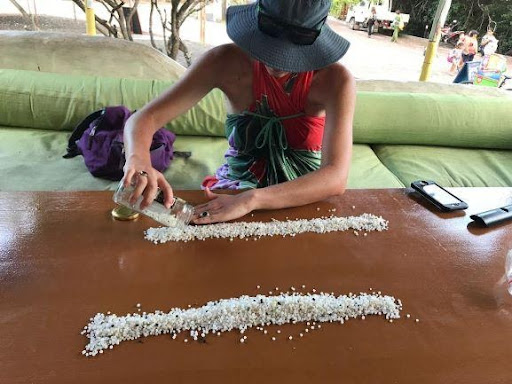
Through this, we aim to raise awareness and hold industry and governments accountable to this issue. Our ultimate aim is to stop pellet pollution at source, across the full plastics and petrochemical industry. This requires not only increased awareness, but a culture shift across companies handling pellets and recognition that the loss of pellets is a problem that must be addressed.
Achieving this does require different approaches, according to what works in different regions of the world. Yet at the same time, the complexity and international nature of the plastics supply chains means solutions should be compatible and complementary.
Fidra alongside other passionate NGOs in the BFFP movement have been working on solutions to pellet loss through the BFFP pellet loss steering group. We want best practice measures to contain pellets implemented as standard across the full plastics supply chain and verified by third party audits, which requires a legislative framework to fully address the issue.
We also share knowledge and information across our growing global network of organisations all working to achieve the best possible solutions to this pervasive pollution problem. Being a BFFP member has allowed us to grow this network and work with organisations all over the world!
Recent highlights of our work
The Great Global Nurdle Hunt 2021
We ran our third Great Global Nurdle Hunt back in October 2021. The event was a real success, with nearly 300 nurdle hunts taking place all over the world run by hundreds of volunteers. The results show that 92% of countries that took part found nurdles. Thanks to all the BFFP members who participated!
Nurdles at COP 26
Another achievement of the past year was getting to showcase the results of our Great Global Nurdle Hunt at COP 26 in November 2021. This allowed us to highlight pellet pollution to international decision makers showing them this is a widespread global issue that needs action now.
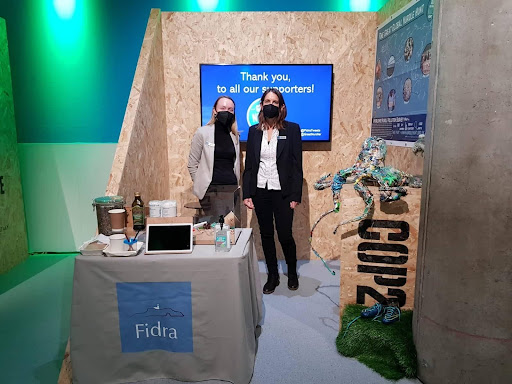
The Fidra team at COP26 | Photo credit: Fidra, 2021
Looking forward:
Since Fidra started working on nurdles almost 10 years ago we have come a long way in taking steps towards ending plastic pellet pollution. Nurdles are now widely recognised as a pollution issue globally and there is acceptance that we need to find a better solution than existing voluntary schemes.
We have used data from the Great Global Nurdle Hunt to engage and work with industry, trade associations, NGOs and decision makers to take steps towards a pellet supply chain free of nurdle pollution. However, we still have a way to go in stopping this pollution across the full global plastics industry.
This requires increased awareness, evidence, and increased interest from all sides: from investors to individuals, and The Great Global Nurdle Hunt has been crucial in allowing us to learn about a range of organisations across the globe who are tackling pellet pollution.
In 2022 we will aim to grow our global nurdle network further, working with ever more passionate people to end plastic pellet pollution. We will also aim to learn and showcase different solutions to pellet pollution.
If you or your organisation have been working on an approach, are inspired to work on pellet pollution or have any ideas of solutions to nurdle pollution, we would love to hear from you – email: info@fidra.org.uk
We can’t keep using energy and fossil fuels to create plastic that ends up in the environment and within our ecosystems. Nurdle pollution is a clear example of how plastic is being wasted before it has even been used and if we can prevent nurdle and plastic pollution, we can make ecosystems more resilient to the climate emergency and biodiversity crisis.
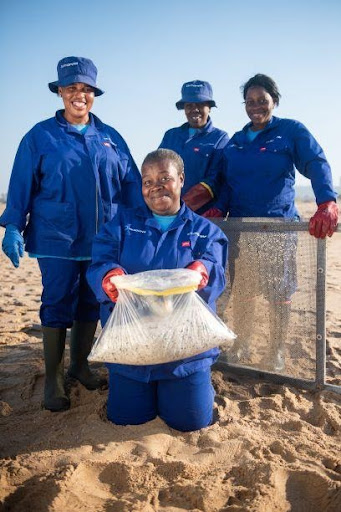
WildOceans South Africa participating in the Great Global Nurdle Hunt 2020. Photo credit: Kelvin Trautmann, 2020
How can the Break Free From Plastic movement help?
Get Hunting
You can take part in a nurdle hunt anytime, anywhere! If you’re new to nurdle hunting check out our how to take part webpages. By adding data to our online map, you continue to build our worldwide picture of nurdle pollution, supporting solutions work internationally.
Spread the word
Sign this petition which is calling on the International Maritime Organisation to set obligations for industry to take responsibility to prevent nurdle spills at sea. In May 2021, the MV X-Press Pearl spilt 1,680 tonnes of nurdles off the coast of Sri Lanka. It is the worst environmental disaster in the country's history, and the single largest nurdle pollution event the world has ever seen. Read more about this here.

